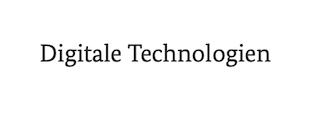VIPFLUID
Predictive maintenance for pump systems based on federated learning and synthesis of multiple sensor data
The conservation of resources is essential in view of the rapid progression of climate change, which is also becoming increasingly evident in Germany. This applies to various areas, including wastewater management. Innovative solutions based on digital technologies not only offer an opportunity to save resources but can also increase the resilience of critical infrastructures.
This is VIPFLUID’s mission. The project is designed to record the status data of wastewater pumps using corresponding sensor technology and leverage it for machine learning. Adaptive sensor technology and an intelligent sensor hub will initially record the pump data and pre-process it locally in the Edge in order to send a compressed data stream to local computing resources (Fog). Synthetic data through machine learning (ML) then enables local and resource-saving, adaptive models to make predictions.
The software solutions are based on generative neural networks and federated learning and are intended to establish the use of machine learning in the field of predictive maintenance to save money and protect the environment. This enables proactive maintenance and minimises reactive behaviour. It additionally avoids expensive and system-critical failures and significantly improves process reliability. Reliable prediction results generated by the system will lead to a considerable reduction in maintenance resources. This technology could substantially cut carbon emissions, helping to achieve climate and environmental protection targets.
Long-term options include extending the technical solution to other areas of application such controlling wastewater flows during heavy rainfall. Dynamic control of the existing infrastructure could prevent damage during heavy rainfall events related to climate change. The project will also help make infrastructure more reliable and resilient. What’s more, ML processes in the plant sector offer strategic potential that has so far remained untapped due to the high resource input required for conventional learning processes.
Consortium:
- Dresden University of Technology
- Herborner Pumpentechnik GmbH & Co KG
- Society for the Promotion of Medical, Bio and Environmental Technologies (GMBU) e. V.
- Ingenieurbetrieb für Automatisierungstechnik Rudolphi & Rau GmbH
- Pumpen-Service-Deutschland GmbH
- SPEKTRA Schwingungstechnik und Akustik GmbH Dresden
- Recommend this page:
- Print view
